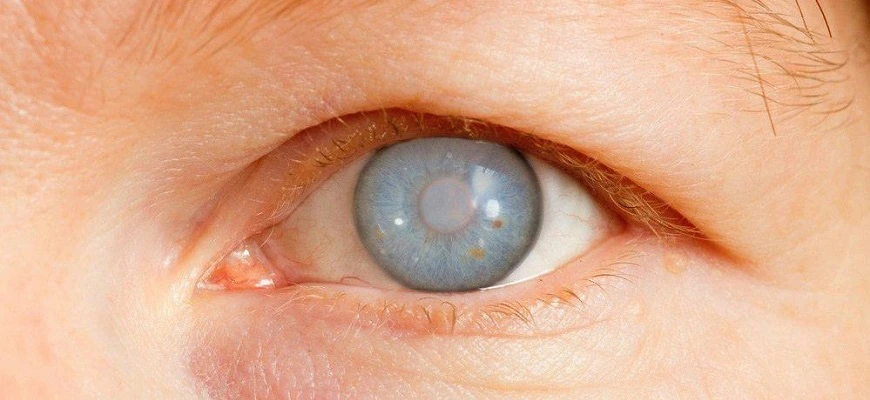
Don’t wait until vision loss occurs. If you have risk factors or notice blurry vision, eye pain, or frequent headaches, visit Vinayak Netralaya, Lucknow, for an expert glaucoma consultation and treatment.
📞 Call Now: +91 70528 97112
📍 Location: Vinayak Netralaya, Aliganj, Lucknow
Glaucoma is a term describing a group of ocular (eye) disorders that result in optic nerve damage, often associated with increased fluid pressure in the eye (intraocular pressure) (IOP).
The disorders can be roughly divided into two main categories:
- Open-angle glaucoma
- Closed-angle(or angle closure) glaucoma
Open-angle chronic glaucoma is painless, tends to develop slowly over time, and often has no symptoms until the disease has progressed significantly. It is treated by the eye specialist in Lucknow at Vinayak Netralaya with either glaucoma medication to lower the pressure, or with various pressure-reducing glaucoma surgeries.
Closed-angle chronic glaucoma ,however, is characterized by sudden eye pain, redness, nausea and vomiting, and other symptoms resulting from a sudden spike in intraocular pressure, and is treated as a medical emergency.
Glaucoma can permanently damage vision in the affected eye(s), first by decreasing peripheral vision (reducing the visual field), and then potentially leading to blindness if left untreated.
The eye is connected to the brain by a nerve called the optic nerve. Glaucoma is caused by damage to the optic nerve due to an increase in the production of aqueous fluid.
A comprehensive glaucoma examination should include:
| Examining… | Name of Test |
| The shape and color of the optic nerve | Ophthalmoscopy(dilated eye exam) |
| The complete field of vision | Perimetry(visual field test) |
| The angle in the eye where the iris meets the cornea | Gonioscopy |
| Thickness of the cornea | Pachymetry |
Another test called the Optical Coherence Tomography (OCT) is a non-invasive imaging test which examines the optical nerve.
Glaucoma can be treated with eye drops, pills, surgery or a combination of all these things. When detected early, there is no loss of vision with proper treatment.
Eye drops form the first line of treatment if the problem is in its early stages. It is important to follow the doctors instructions very thoroughly for good long term benefits. If eye-drops are unable to control intra-ocular pressure, pills form the next line of treatment. Both eye-drops and pills can have side-effects and therefore regular meetings with the optholmologist and proper management of treatment are important.
If medications do not achieve the desirable results, or their side-effects are not manageable, surgery is thought of.
Laser procedure
Laser procedure is an intermediate step between drugs and traditional surgery.The laser beam (a high energy light beam) is focused upon the eye’s drain. This can change the eye’s drainage system in very subtle ways so that aqueous fluid is able to pass more easily out of the drain. It’s a quick procedure and your routine activities can start from the next day. There are different types of laser procedures. The lasers that deal with open angle glaucoma are directed towards treating the trabecular meshwork. For closed angle glaucoma, laser procedure is used to design a bypass to the usual path of fluid flow which is blocked. Many patients get considerable relief after laser procedure.
Traditional incisional surgery
The most popular traditional surgery is called trabeculectomy. It is used for both open angle and closed angle glaucoma. Here the surgeon creates a small passage for draining out excess eye fluid. To reduce the possibility of the body’s response system scarring and thereby closing the passage created by the surgeon, surgery is performed with anti-fibrotic agents. 50% of the patients no longer require glaucoma medication for a long time after this surgery. Trabeculectomy is a short procedure and patients can be discharged after a few hours of observation. The recovery time is from four weeks to two months.
Shunt implant surgery
Another type of surgery which introduces tube shunts for free flow of drain is now gaining in popularity. Tube shunt is a flexible glaucoma drainage device that is implanted in the eye to divert aqueous humor (the fluid inside the eye) from the inside of the eye to an external reservoir.The fluid that collects in the reservoir is then absorbed by the eye’s own veins and transported out of the eye cavity.The tube shunt is made of silicone or polypropylene. The entire implant is covered with the eye’s own external covering.
There are several different types of tube shunts available. Shunt is selected based on the specific eye condition and surgeon’s preference. The Ahmed Glaucoma Valve(Shunt) is the most commonly used type of shunt.
Cycloablation
If traditional/shunt surgery is unable to deliver the results, or is seen as unlikely to produce relief, a laser procedure called cycloablation is available. Here a part of the ciliary body, which produces the fluid is destroyed (ablated) with laser. This is a realtively new procedure and is done only when nothing else works.
🔹 Expert Glaucoma Specialist – Dr. Ajay Prakash
🔹 Advanced Treatment Options – Laser, Medication & Surgery
🔹 Affordable Glaucoma Surgery Cost – Quality Treatment at Best Price
🔹 State-of-the-Art Eye Care Center – Trusted by Thousands of Patients
🔹 Personalized Care & Support – Tailored Treatment for Every Patient
